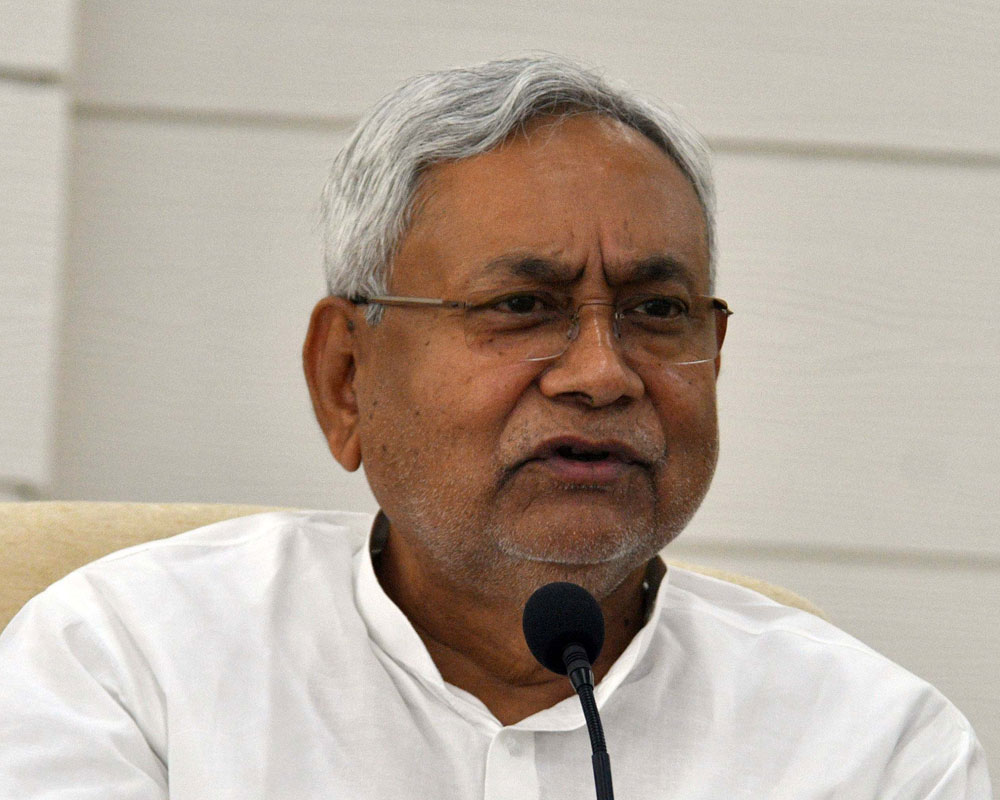Chief minister Nitish Kumar on Wednesday met the visiting Fifteenth Finance Commission headed by N.K. Singh and said that investments in Bihar were possible only if it got special category status.
“Bihar is a land locked state hence there are no industrial and trade investments here like the coastal states. Such investments are possible here only if it gets special category status,” Nitish said.
“The backward states face an acute lack of means. Distributing resources among them as it’s done among other states on the basis of equality and equalisation is not justified because it will lead to the backward states sliding further,” Nitish added.
Quoting Mahatma Gandhi’s concept of bringing the marginalised people to the mainstream, Nitish said that it could be made easier by economic decentralisation. He also said the aim of his government was to ensure basic facilities to the people.
At a closed-door meeting with the finance commission that lasted for around four hours, Nitish asked it to pay attention to the issue of not differentiating between categories of general and special states as “paradoxically recommended” by the previous panel.
The chief minister’s speech came after deputy chief minister Sushil Kumar Modi, principal secretary, finance, Sujata Chaturvedi and secretary (expenditure) Rahul Singh made presentations about state-specific needs worth Rs 99,668 crore to implement the agricultural roadmap–III, Nitish’s seven resolves for a developed Bihar, skill development, road maintenance, housing for poor, shelter homes, protection of archaeological sites and climate change related actions.
The amount is just for state-specific things and does not consider tax devolution receipts.
Nitish pointed out that the population of Bihar was more due to historical and geographical reasons, including fertile land and better environment. This has led to very high population density.
The chief minister’s remarks are significant because population is one of the criteria on the basis of which the finance commission makes the recommendations for devolution of funds among the states.
This time the commission is considering the 2011 census as the population base instead of the 1971 census data as used by the previous finance commissions. Incidentally, developed states where population has reached the replacement level or has almost stabilised are opposed to this, saying it would result in lesser funds to them and would be akin to being punished for good work.
Nitish pointed to the need for more resources as the budget of the state has grown from Rs 30,000 crore in 2005 to Rs 1.8 lakh crore in 2018 because the government was working for all-round development, be it agriculture, education, health and infrastructure.
The chief minister said Bihar needed around Rs 8,000 crore to Rs 9,000 crore to achieve its aim of opening Plus 2 schools in all panchayats.











